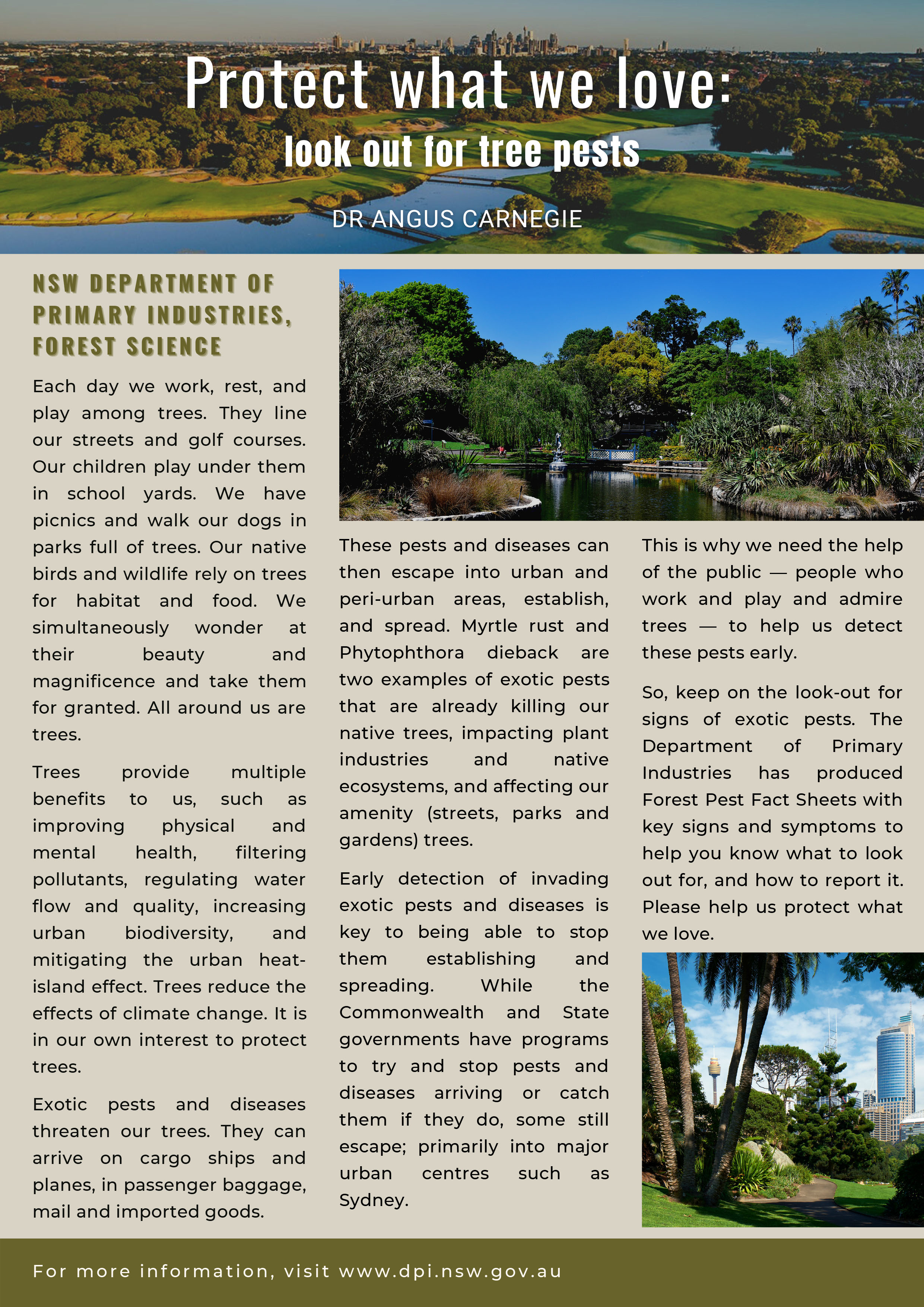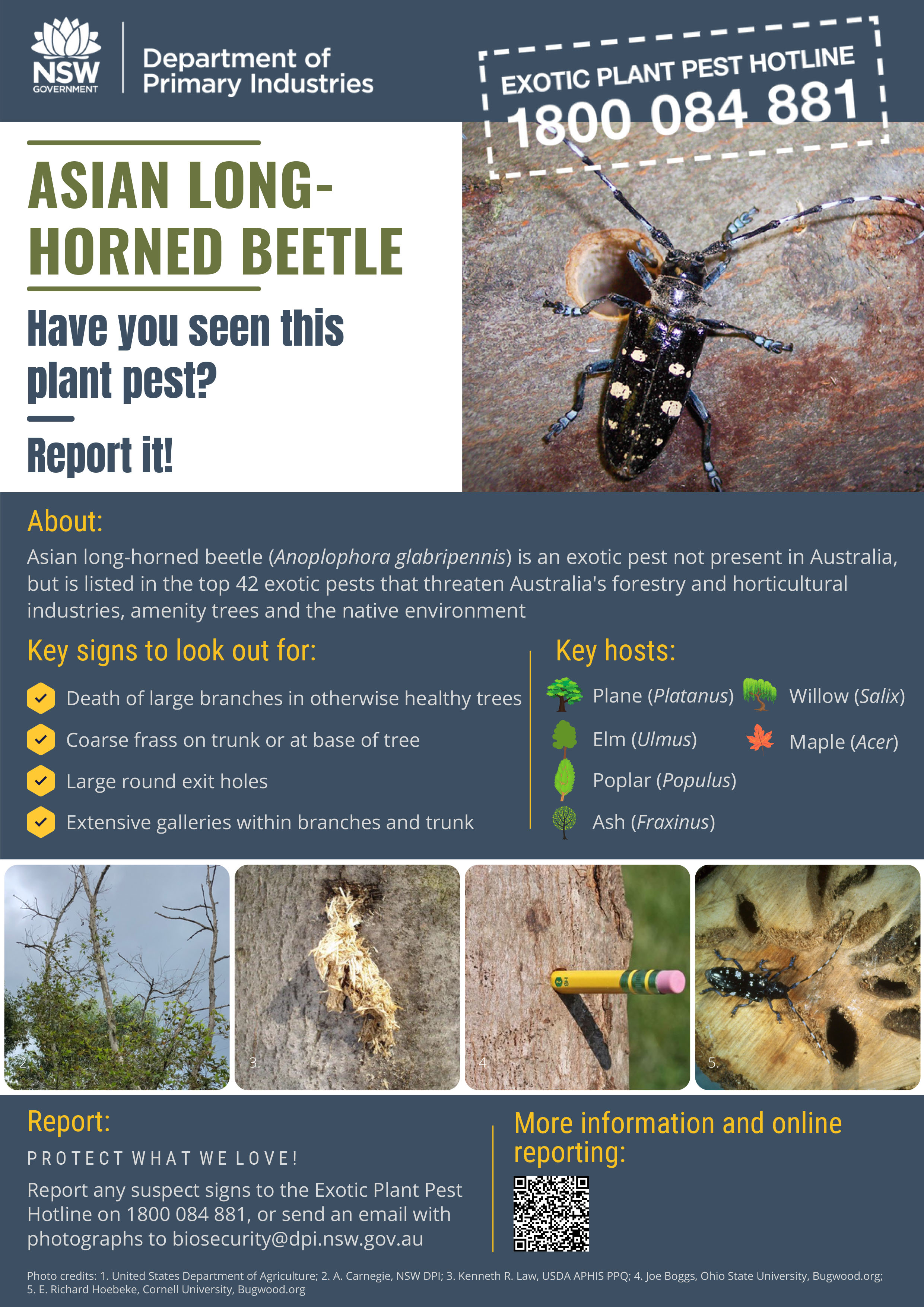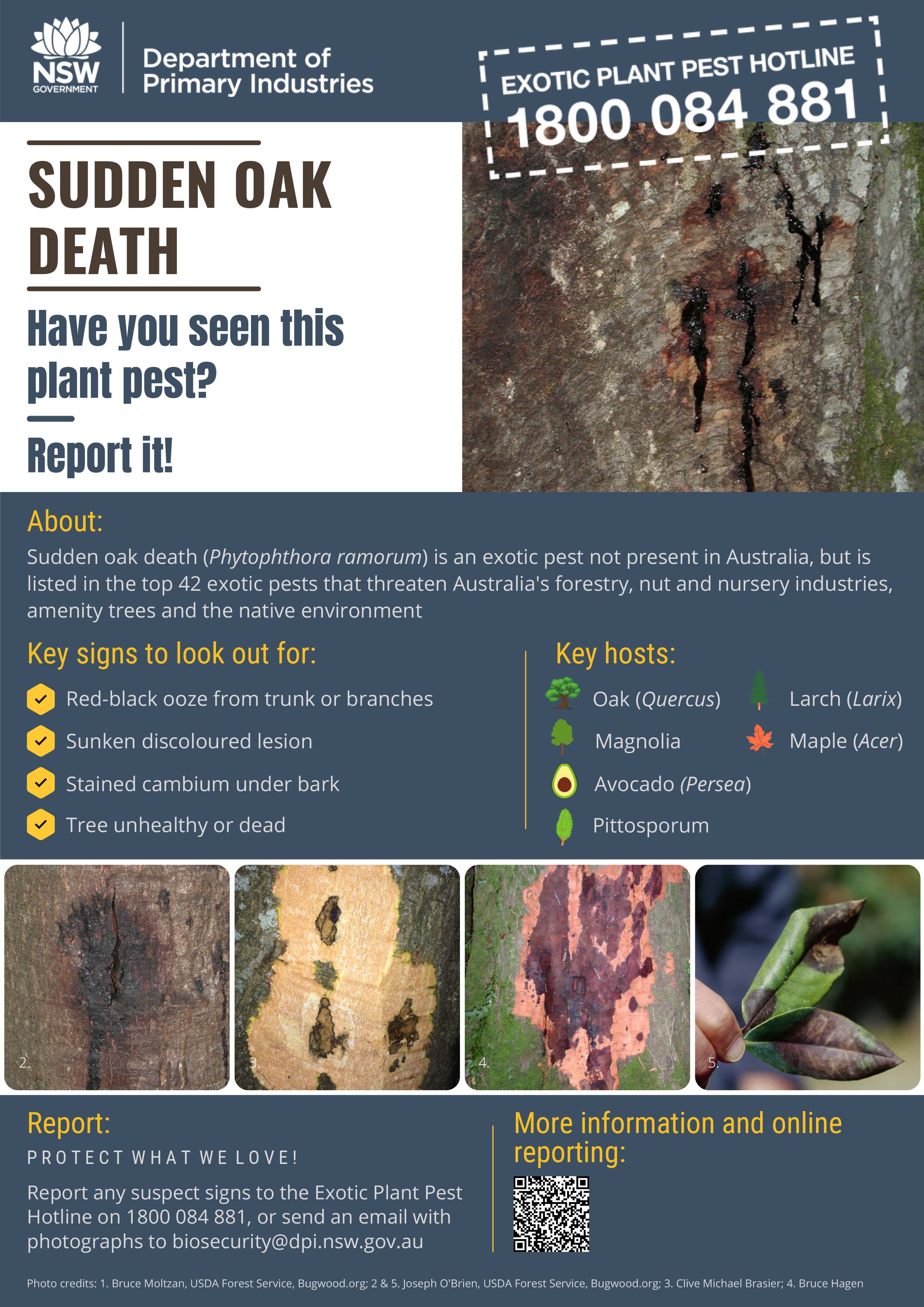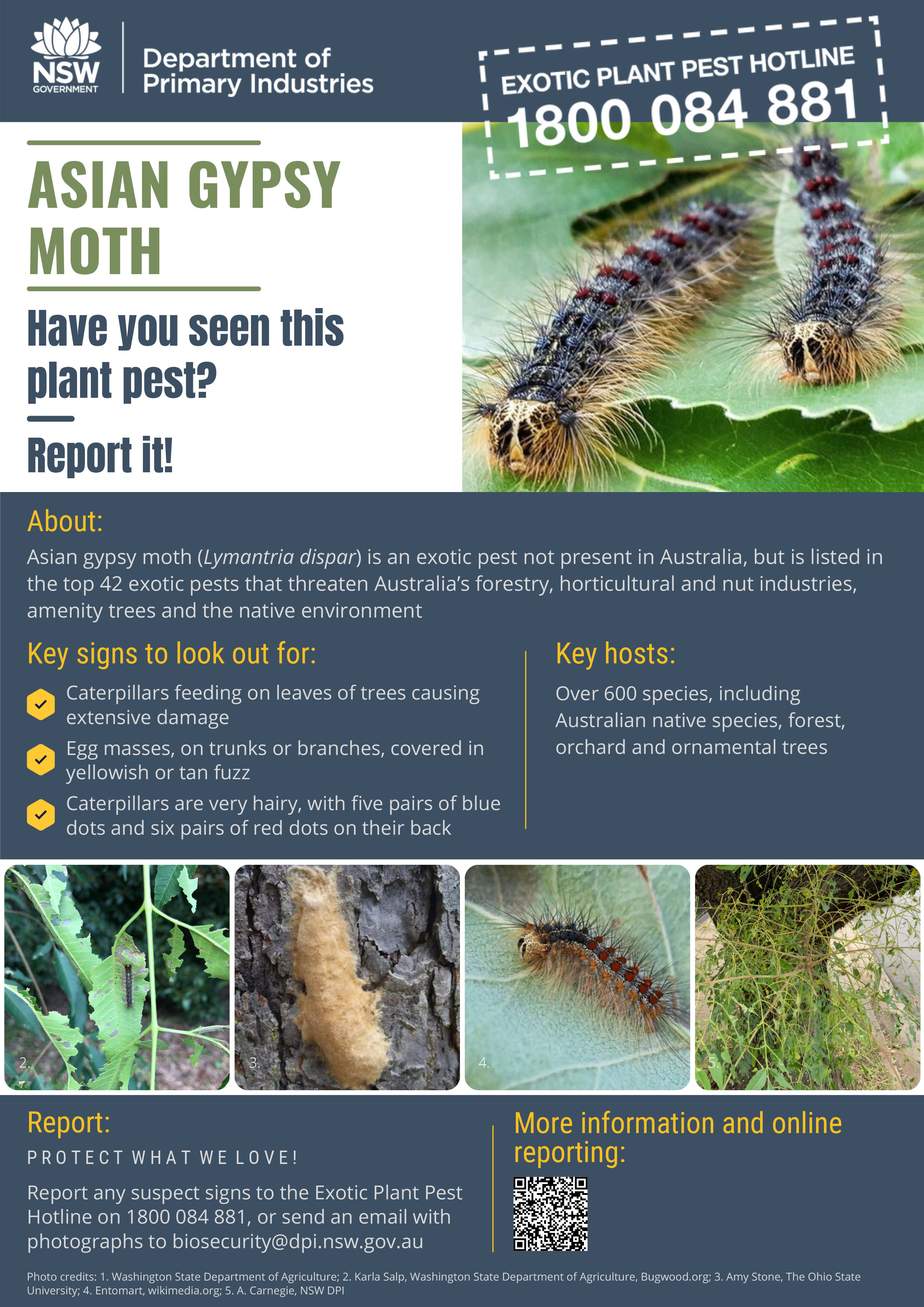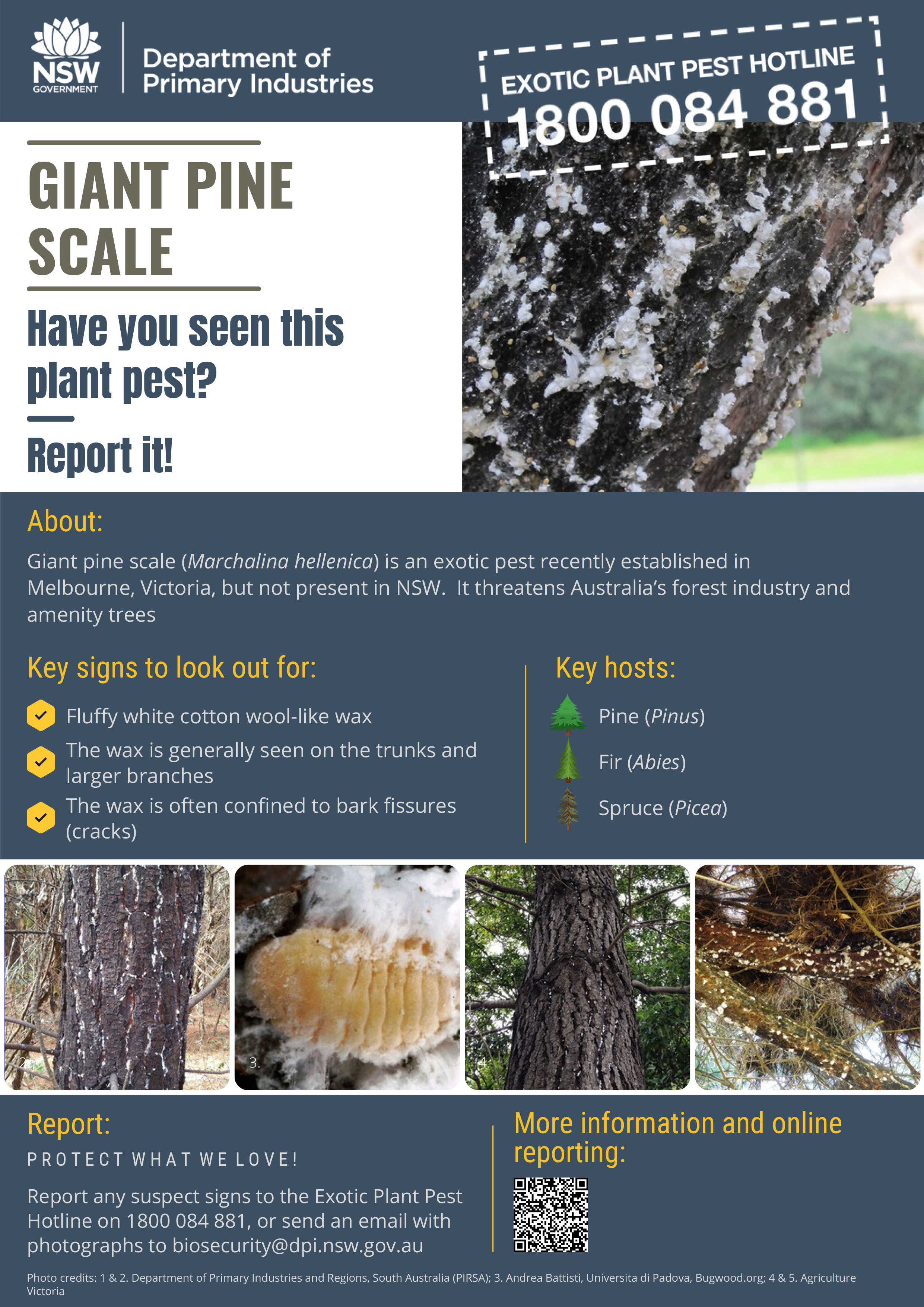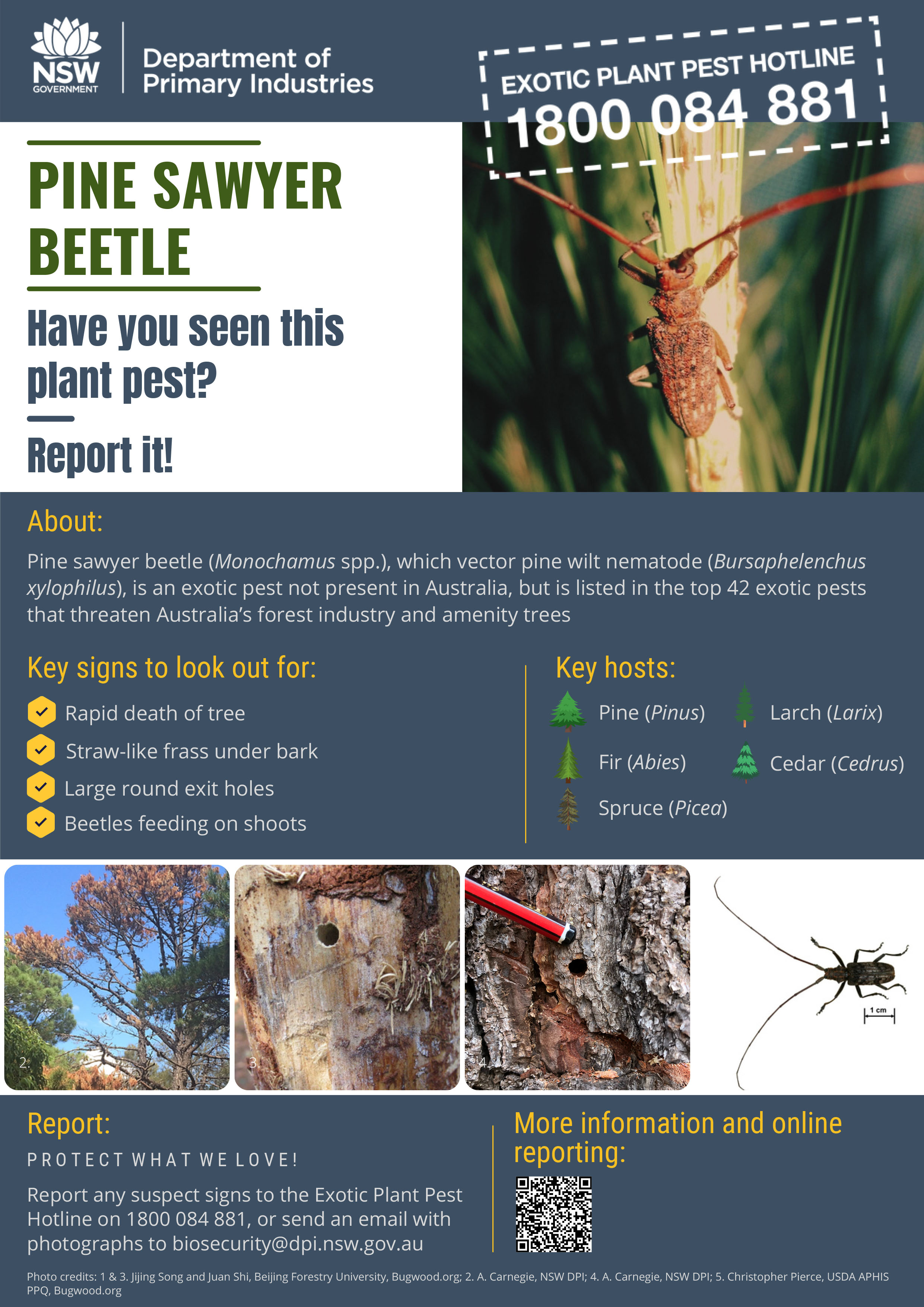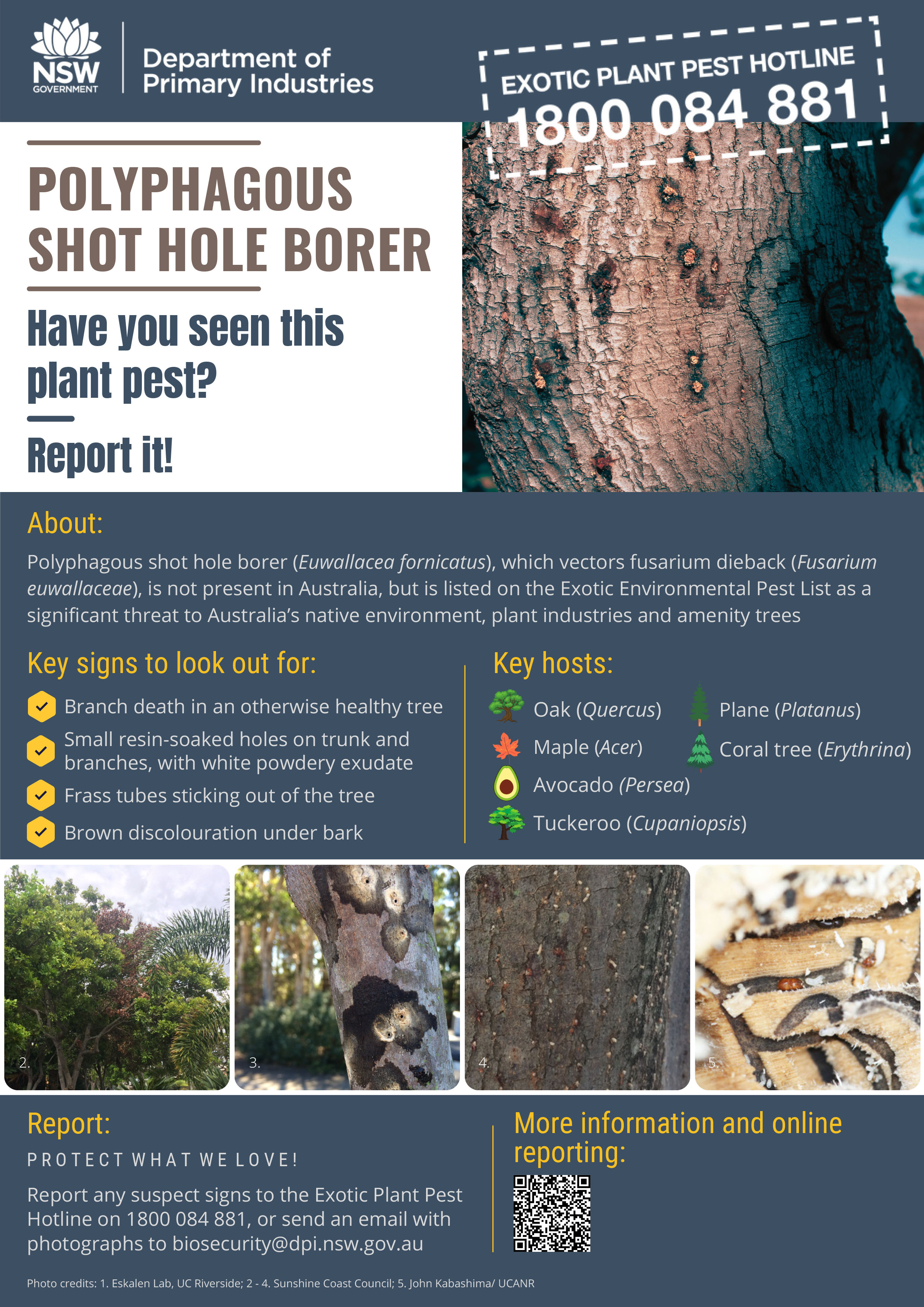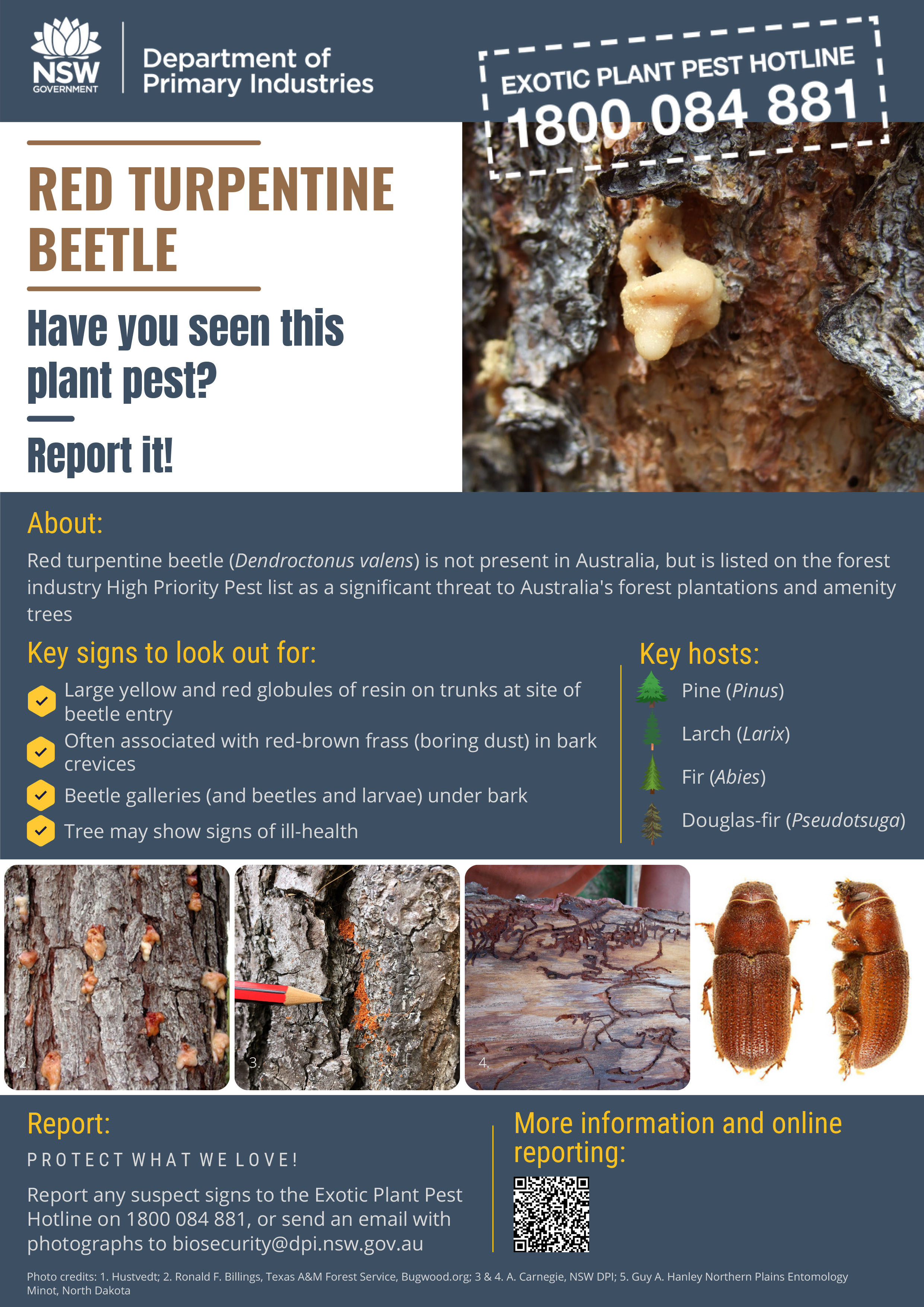
Protect what we love

Look out for tree pests
Each day we work, rest, and play among trees. They line our streets and golf courses. Our children play under them in school yards. We have picnics and walk our dogs in parks full of trees. Our native birds and wildlife rely on trees for habitat and food. We simultaneously wonder at their beauty and magnificence and take them for granted. All around us are trees.
Trees provide multiple benefits to us, such as improving physical and mental health, filtering pollutants, regulating waterflow and quality, increasing urban biodiversity, and mitigating the urban heat-island effect. Trees reduce the effects of climate change. It is in our own interest to protect trees.
Exotic pests and diseases threaten our trees. They can arrive on cargo ships and planes, in passenger baggage, mail and imported goods.
These pests and diseases can then escape into urban and peri-urban areas, establish, and spread. Myrtle rust and Phytophthora dieback are two examples of exotic pests that are already killing our native trees, impacting plant industries and native ecosystems, and affecting our amenity (streets, parks and gardens) trees.
Early detection of invading exotic pests and diseases is key to being able to stop them establishing and spreading. While the federal and state governments have programs to try and stop pests and diseases arriving or catch them if they do, some still escape; primarily into major urban centres such as Sydney.
This is why we need the help of the public — people who work and play and admire trees — to help us detect these pests early.
So, keep on the look-out for signs of exotic pests. The Department of Primary Industries has produced Forest Pest Factsheets with key signs and symptoms to help you know what to lookout for, and how to report it.
Please help us protect what we love.
For more information go to: DPIRD Plant biosecurity / Insect pests and plant diseases
Forest Pest Factsheets
These factsheets provide information about the following forest pests, outlining the key signs to look out for and key host plants: Asian long-horned beetle, Sudden oak death, Asian gypsy moth, Giant pine scale, Pine sawyer beetle, Polyphagous shot hole borer and Red turpentine beetle. If you see anything unusual, you can report it to the Exotic Plant Pest Hotline on 1800 084 881 or send an email with photographs to biosecurity@dpi.nsw.gov.au. Click on the factsheets below for more specific details about each forest pest.

